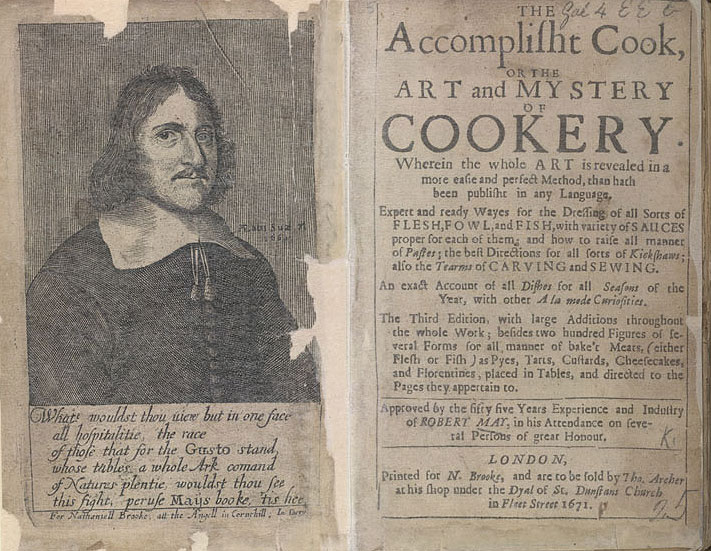The French have been credited with inventing the most marvellous things including Asprin and Hot Air Balloons. But when it comes to French Toast the credit appears to lie somewhere else entirely.
Where exactly? Your guess is as good as mine. Or it could be Ancient Rome, anywhere between the 1st and the 8th centuries. Somewhere within these 800 years, a compilation of Roman recipes called “Apicius” was written. This cookbook of sorts, had a recipe for something called “pan dulcis” or “aliter dulcia”. The second name simply means “another sweet dish” and following the recipe requires using “fine bread” to make really good French Toast. To read the original however, you’d have to be very good at Latin.
The French on the other hand called the same dish “pain perdu” or “lost bread”. How exactly did the bread get lost? Well, more than the bread, it was the fact that it was stale that got lost, once it was dunked into a mixture of milk, eggs and sugar and fried in butter. Now hopefully, when you order French Toast at your favourite café, they are not operating on the same principle. On the bright side, you would never know.
So, the dish is as old as the hills, but what about its name? Some claim that the first time the name was used was in a 1660 English cookbook aptly, called “The Accomplisht Cook” by a professional… cook called Robert May. He had trained in France before working in England. Could this be his ode to his French teachers? We’ll never know.

Here’s a theory I have: A harried parent dropped the children’s toast into their omelette mixture one morning. S/he had no time to fix it because the Children needed to be dressed for school at the same time. So, s/he added some milk and sugar, called it a balanced meal and fried the whole thing up. When the children finally settled down and demanded what’s for breakfast, the poor parent blamed the French.
But people better than me have come up with more serious theories. One of them, is that French Toast was actually German Toast till World War I happened. The renaming was a patriotic move made by the French meant to insult the German Emperor or Kaiser. The Germans still haven’t verified this.
But what about Bombay Toast? Yes, there is such a thing, in India at least. Leavened Bread wasn’t a part of Indian cuisine till the early 16th century when it arrived with the Portuguese. But once bread did arrive, with a bit of cajoling on both ends, Indians embraced it, albeit on their own terms. These terms also applied to French Toast. So instead of Sugar, the Indian version was seasoned with salt, a sprinkle of turmeric and just a dash of red chilli powder or pepper. And since the result tastes nothing like French Toast, we proudly called it Bombay Toast. Then in 1995, the Indian government decided to change Bombay’s name to Mumbai. Toast was too tired to catch up.
But the good news is: the dish still exists in different versions throughout India. For a taste, join us on the Food Trail in Pondicherry. We’ll do you one better by serving it with some really good stories and a hot coffee. But if you are still craving something truly French, join us on the French Connections Trail.
Archives
- January 2022
- December 2021
- November 2021
- August 2021
- March 2021
- February 2021
- January 2021
- December 2020
- November 2020
- October 2020
- September 2020
- August 2020
- April 2020
- March 2020
- February 2020
- January 2020
- November 2019
- October 2019
- September 2019
- August 2019
- July 2019
- June 2019
- August 2017
- February 2017
- January 2017
- October 2013
Featured Posts
- Tales that pots tell: Keeladi excavations AUGUST 18, 2021
- The Last Grand Nawab: Wallajah FEBRUARY 10, 2021
- How Tej Singh became Raja Desingu of Gingee FEBRUARY 5, 2021
- How Shahjahan seized the Mughal throne JANUARY 28, 2021
- Alai Darwaza – Qutub Minar Complex, Delhi NOVEMBER 21, 2020
- Marking History through British buildings NOVEMBER 17, 2020
- The last great queen of Travancore NOVEMBER 7, 2020
- Brahmi and the evolution of scripts OCTOBER 15, 2020
- The Cambodian King of Kanchipuram OCTOBER 14, 2020
- James Prinsep – the man who read the writing on the wall OCTOBER 10, 2020
- Mariamman – the Village Goddess who travelled SEPTEMBER 30, 2020
- Misnamed Monuments of Mamallapuram SEPTEMBER 28, 2020








